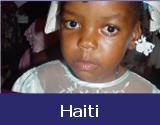 |
Contact usUnited Caribbean TrustConservation - landIn memory ofConservation - sea
Endangered species
Turtle stories |
home >> caribbean >> caribbean
ecotourism>> caribbean
conservation>>
Soweto Mountain of Hope (Somoho) Story and photos by Thomas Thale21 August 2002 They call themselves the Soweto Mountain of Hope (Somoho), and it is from a nearby mountain, more accurately a hillock, that they hone their artistic skills and tend to the environment, giving a new lease on life to both man and mountain. But they are not imposing figures at all - just a group of youths, mainly from Chiawelo in Soweto, who spend their days engaged in environmental and cultural projects, much to the delight and revival of the local community. They sing and dance, paint and weave, sculpture wood and mould clay, tend land and plant trees, recycle paper and collect waste, prepare food and stage plays - all under the tutelage of Mandla Mentoor, a community and environmental activist who founded the organisation, and winner of the World Wilderness Forum's Green Trust Award 2001. Mentoor immediately invested the R10 000 prize back into the project, buying gloves and masks to use in cleaning up the neighbourhood. Mentoor works as a coordinator for the Environmental Justice Networking Forum. The organisation has cultivated not just the land around the mountain, but also good working relations with Joburg City's utilities. Propcom, a company which oversees the City's properties, has leased out the tower, previously a water reservoir, and the surrounding open space to the organisation, enabling Somoho to act as custodians of the place. "In terms of our 10-year lease agreement, they will develop the park for the community and keep it clean", says Hennie Oosthuizen, property manager at Propcom. "They are free to develop the area and put up facilities, but all plans must first be approved by the City." Pikitup and the Johannesburg Roads Agency now supply the organisation with equipment for its clean-up operations. City Parks also advises the organisation on environmental aspects. A pragmatist that he is, Mentoor has practical activities planned for the World Summit on Sustainable Development. "We will showcase sustainability in action. People who tour our area during the summit will engage in practical environmental activities", Mentoor explains. "On a tree-planting day, they will plant trees with us." For 31 August, Somoho plans a procession to Avalon cemetery. "The march will be to bury all degradation and injustice. Symbolically, we will be giving new birth to the entire earth", Mentoor says. "At Avalon, participants will be asked to plant flowers to symbolise their 10-year commitment to earth democracy." When it was established in 1990 the organisation was called Amandla Waste Creations. At the time, it was just dedicated to cleaning up the environment and recycling waste. It has since been renamed Somoho and undergone phenomenal growth and today boasts a membership of about 300, all engaged in various environmental and cultural initiatives. It has become one of the largest and most enterprising community-based organisations in the area, and is in the process of registering as a trust. "We wanted to set up an eco-cultural environmental centre with a potential to attract tourists", says Mentoor.
Their mountain is a humble affair - more of a mound than a mountain. But to many Sowetans, it is a source of hope. Called "Entabeni [Mountain] for Life", it lies on a dry, rocky patch of elevated land. Somoho members have now turned the mountain into a terrace by beading it, using rocks. Rocks of varying sizes have been used to form what are called "dialogue circles" around the mountain. These circles are used for discussions. Old tyres have also been put to new use - as flower pots adorning the mountain. The brown patch of the soil blends with the rocks - natural and man-made - to create a dominant brown colour, but a few trees have now been planted on the ridge. Somoho members have also planted trees along Rihlamfu Street which goes past the mountain and is the main access route to the Avalon cemetery. At the summit of the mountain lies a disused water tower, soon to be converted into a restaurant specialising in African cuisine. The Canadian Government has already provided funding for this ambitious project. The Development Bank of Southern Africa has also committed itself to financing some of the organisation's activities. Their main sponsor however, is the British High Commission.
The landscaping of the mountain has been accompanied by an explosion of cultural activities in the area. At Mentoor's house, the headquarters of the organisation, members come and go all day, every day. The house is used mainly by sculptors producing artefacts from recycled paper. Jabulani Banda's house - the coordinator of the cultural programme - is used for music rehearsals. Here, neighbours can hear music instruments playing and feet stomping as the artists go about their business. In summer though, all activities take place on the mound. Under its Dzomo cultural wing, Somoho has established a fully-fledged band called Mavimba which plays Afro jazz. They pound on drums, beat on marimbas and blow penny whistles - leaving their audience entranced. Other artists display their skills in weaving baskets in intricate patterns, painstakingly creating wire cars, African masks, waste trophies, plastic bowls, beads work, animals or tin furniture. In their exhibitions, a wooden snake and a wooden miniature ship are placed alongside birds, giraffe and buffalo - all made of waste paper. "We leave nothing to waste - we turn waste into an economic asset," Mentoor says. Apart from these creative pursuits, Somoho also attracts many child participants under its "Children Loving Nature" campaign. This mentoring programme is aimed at fostering artistic creativity and environmental awareness among children between the ages of five and 16. The children engage in activities like singing, sports and cleaning the environment. They also receive lessons in particular disciplines, including drawing, dancing and pottery. Somoho caters for about 100 members daily. But it is on Saturdays when both the mountain and Mentoor's house really come alive. This is the day when all the members of the organisation gather to undertake set activities. All departments converge to participate in a major activity under one theme. Participants could be brought together under a topic such as "sports against crime" or "environmental clean-up campaign". Whatever the activity, on Saturdays, Chiawelo is invaded by young people who engage in productive social activity under the umbrella of Somoho. Source: City of Johannesburg web site |


 


|
| Copyright © 2022 www.UnitedCaribbean.com. All rights reserved. Disclaimer Click to Contact us |